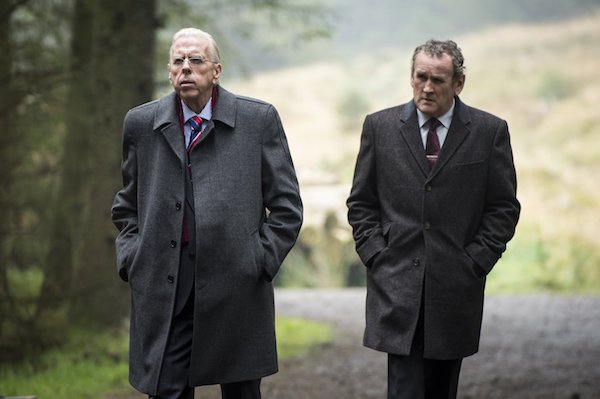
'The Journey' negotiates from war to peace
By Martha K. Baker
Two men openly said horrible things about each other during a historical period known ominously as The Troubles. The enemy leaders are forced to journey together in 2006 during the Northern Ireland Peace Accords. Sinn Fein leader Martin McGuinness and Democratic Party pastor, Ian Paisley, are chauffeured to the meeting.
Writer Colin Bateman imagines what transpired between the two, even in a funny scene in the men's can of a gas station. The result may not be history, verifiable and true, but it is drama, rich and rewarding.
The journey is not long, but it is bumpy, and it presages a change in Irish history. As the narrator/bureaucrat Harry Patterson says, "The hand of history is 'round my throat." He is wired to the chauffeur and awaits progress reports on the old boys' networking.
The Rev. Paisley is also on his way to his 50th wedding anniversary party, and that event provides an entree for the more flippant MacGinnis to wind up the old, coughing Presbyterian. The chauffeur, a complex character played well by Freddie Highmore of "Bates Motel," gets the two men to talk sports, part of the sport of diplomacy until the pronoun becomes "we."
Paisley, as interpreted so well by Timothy Spall, speaks as if cement were concreting in his mouth. Colm Meany plays the elfish MacGinnis.
Nick Hamm directed The Journey with an eye on art as well as history. He has the witnesses to this history, including John Hurt as Patterson and Catherine McCormack as Kate Elgar, act like a Greek chorus of commentators. Hamm includes the sound of an Irish drum, percussive and foreboding. The Journey offers moments of humor and waltzes of grace and anger in a film of an imagined journey.


